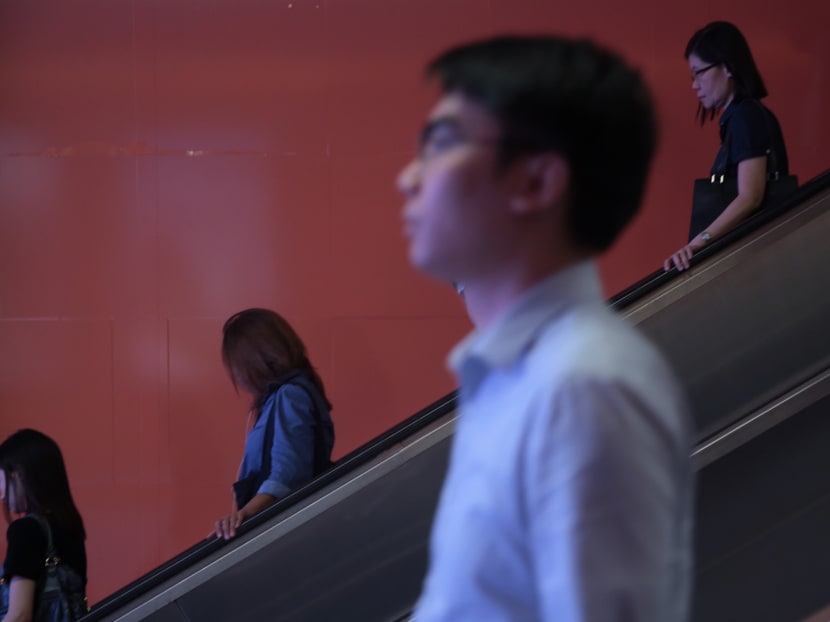Leaving the nest is proving difficult for young adults in Asia
TOKYO/SEOUL — In some of Asia’s biggest economies, young adults are living longer with their parents as they struggle to strike out on their own.
TOKYO/SEOUL — In some of Asia’s biggest economies, young adults are living longer with their parents as they struggle to strike out on their own.
The ageing of Japanese and South Korean societies, and the significant slowdown in their economic growth rates, are contributing to a large increase in households with elderly parents supporting adult children who haven’t been able to leave home. In some cases, it’s even forcing parents to delay retirement.
The stubbornly high youth unemployment rate is seen as a big part of the problem in Korea. This is less of an issue for Japan, where the rise of part-time and contract employment, which often comes with low pay and little security, is a major contributor. In both cases, the opportunities for high school and college graduates to secure steady jobs in offices or on factory floors is not what it was for their parents.
In Japan, more than three million singles aged 35 to 44 still live with their parents, according to a government study. Some 620,000 are either unemployed, have stopped looking for work or only work on and off.
“In many cases, they gave up trying after failing to land a job for three or four years,”said Mr Fumihiko Nishi, a researcher at the Statistical Research and Training Institute.” Almost all of them probably have no income.”Once they get into their mid thirties, it gets harder to change their life course and many end up living on their parents’ income and pensions, Mr Nishi said.
Almost one in two people aged 20 to 34 in Japan were single and living with their parents, according to data for 2012 cited by Mr Nishi. That’s more than 10 million people. While this ratio has risen, this category has been shrinking as the total population in the age group has declined.
In Korea, which appears to be travelling down the same demographic road as Japan, the ratio of households with unmarried children aged 25 or above jumped to 26 per cent in 2010, from just 9 per cent in 1985, according to a report by the Korea Institute for Health and Social Affairs.
The report referred to this growing group as a “kangaroo tribe”, who depend on their parents while college graduation, employment and marriage all get delayed.
A separate survey from the institute showed that the average cost for parents supporting their adult children was 740,000 won (S$903) a month.
In both nations, these trends have coincided with parents working to a later age, whether it be to save more for their own retirement or to keep supporting their dependent children.
South Korea has seen the number of workers aged 60 or above steadily rise, while for people in their twenties there has been little change. The number of workers aged 60 or above was 4.1 million in the third quarter, compared with 3.8 million for those aged 20-29, data by statistics office show.
Japan has seen a steep increase in older workers, especially in the last five years.
There’s also a risk that elderly parents working longer to support dependent children creates a “vicious cycle” that reduces the number of job opportunities for new workers, according to economists at Standard Chartered in Seoul.
South Korea’s jobless rate for those aged 15-29 was 8.5 per cent in October, more than twice the 3.4 per cent for the overall population.
Official data for much of the rest of Asia is hard to get. There are no comparable numbers available for China, the Philippines and Malaysia for example. It’s also the case that in parts of Asia, including China, extended families living together is a cultural norm.
In Hong Kong, home to some of the world’s priciest real estate, about 53 per cent of males and almost 47 per cent of females aged between 15 and 34 lived with their parents in 2015. Around 29 per cent of young adults in Australia live with their parents, according to the 2011 census, up from 21 per cent in 1976.
Some 97 per cent of unmarried people aged 15 to 34 lived with their parents in Singapore, as of 2013, according to the statistics bureau. For married people it was 37 per cent.
In Indonesia, a predominantly Muslim country where young adults generally stay at home until they are married, 67 per cent of people aged 16 to 30 lived with their extended family, although not necessarily with their parents, according to official data from 2015.About 1.5 per cent of Indonesians in that age group lived alone.
A survey by CBRE Group found that almost two thirds of Asia-Pacific millennials (young adults aged between 22 and 29) are still living at home and 18 per cent have no plans to move out at all with unaffordable real estate cited as the common factor. Hong Kong and India have the highest proportion of millennials still living at home, according to CBRE who surveyed 5,000 millennials aged between 22 and 29 in Australia, China, Hong Kong, Japan and India.
It’s not like Asians don’t want to own their own home. Some 65 per cent of those surveyed want to buy their own property, according to the CBRE report.
While the region may boast the world’s fastest economic growth, that’s little comfort for young adults who can’t afford to leave the nest. BLOOMBERG










